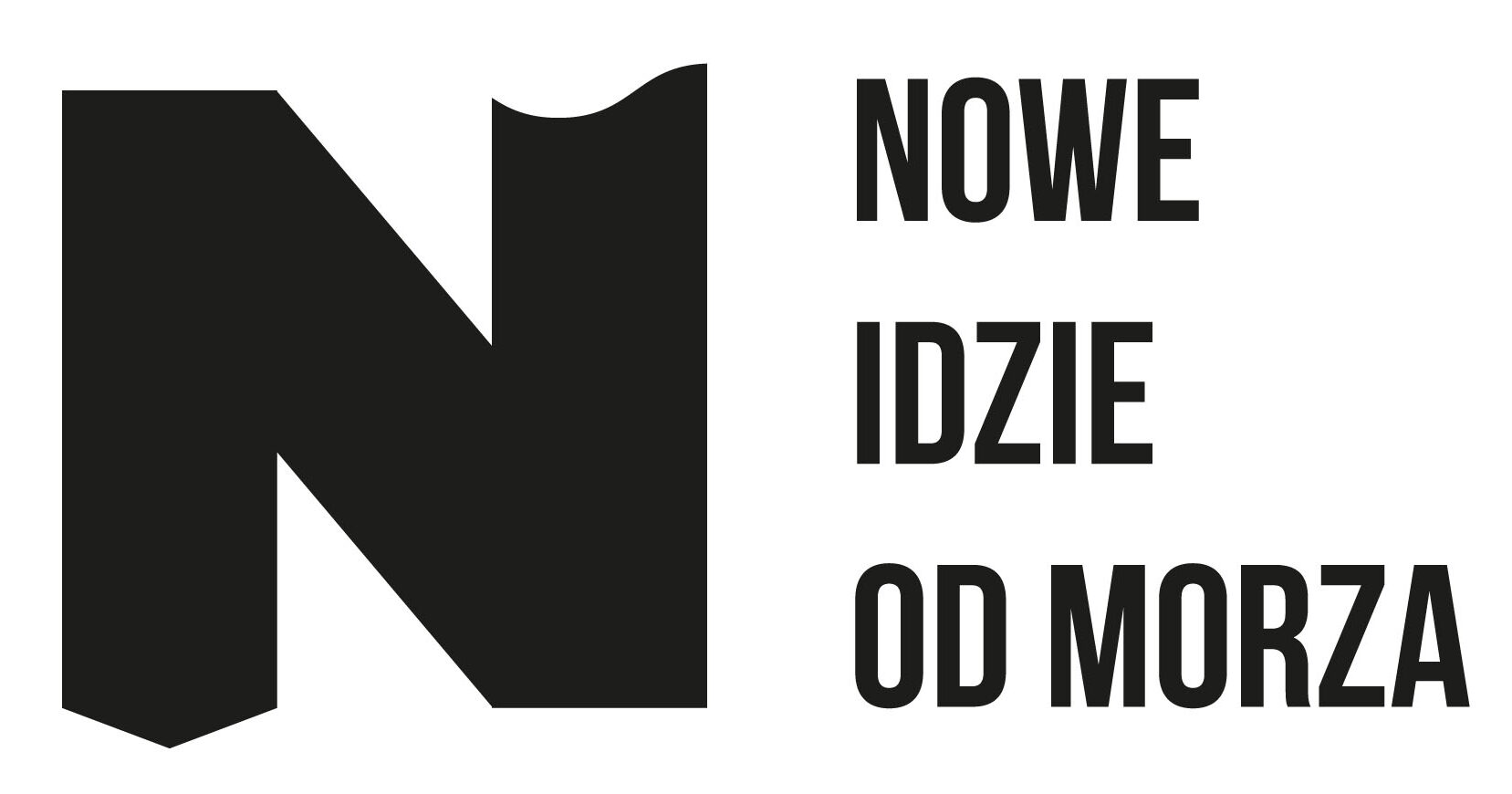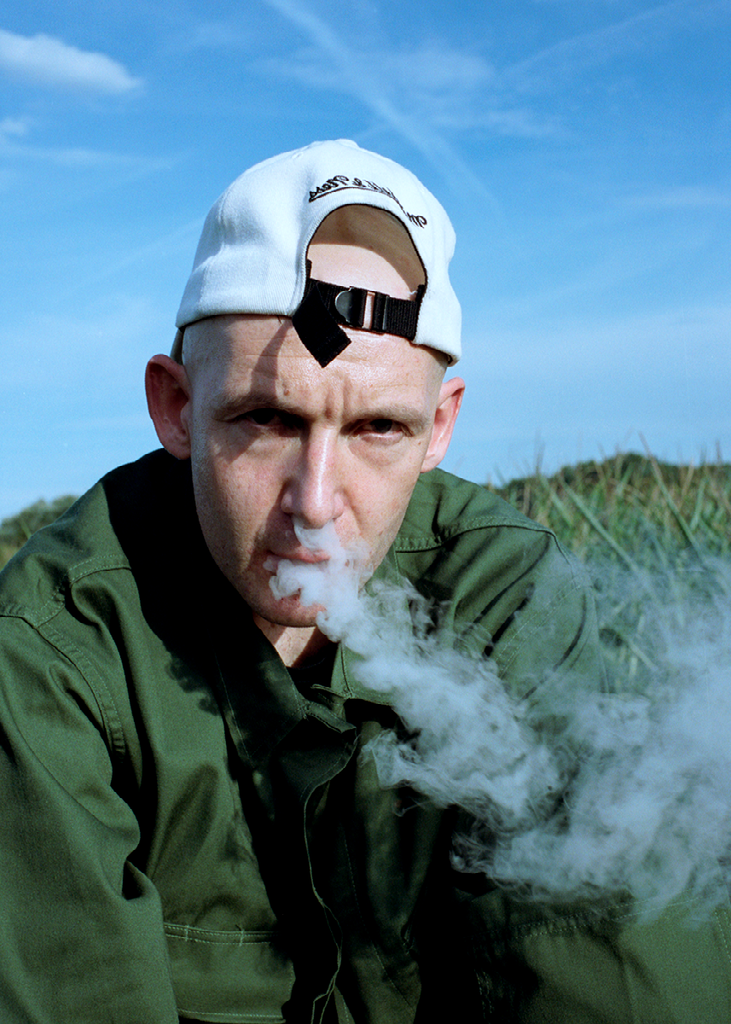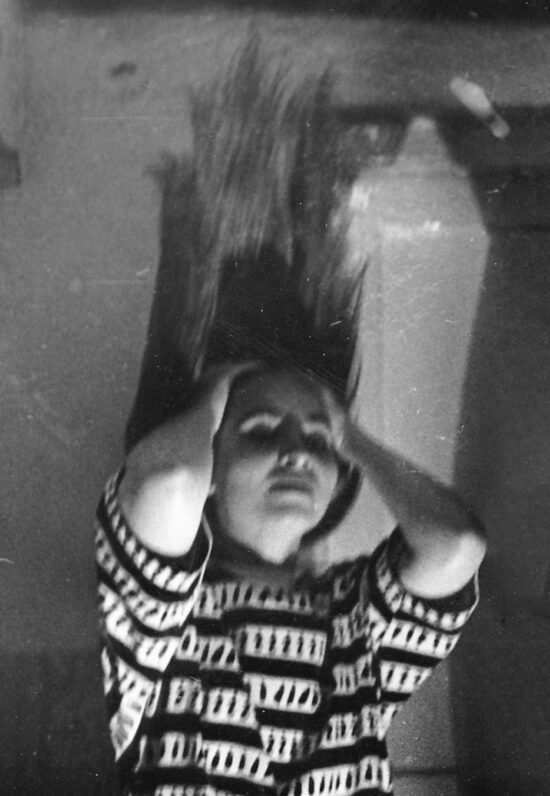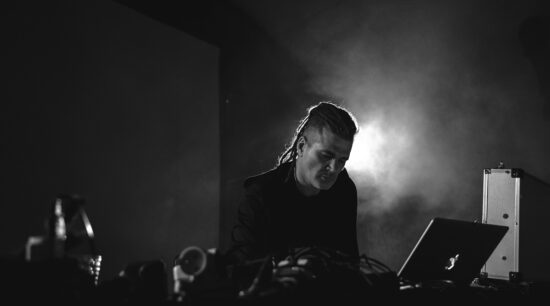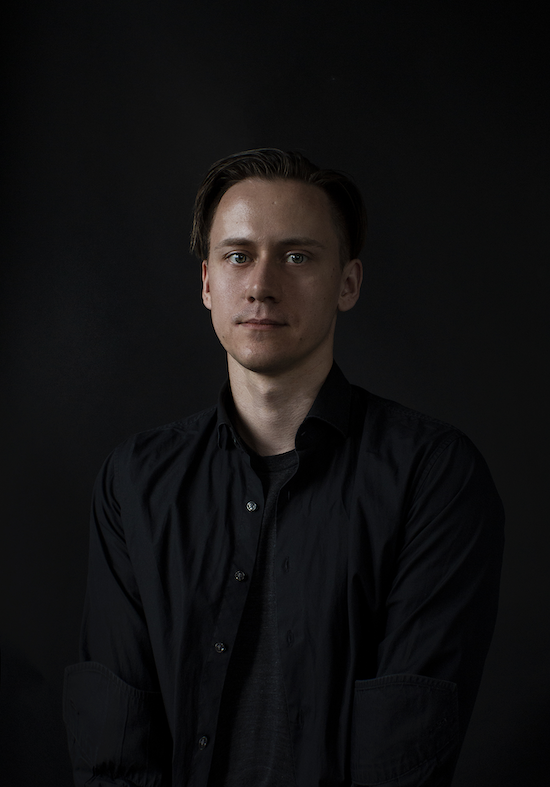– I stand in front of the microphone and build up the narrative, line after line. I enter into a dialogue with myself or with someone else. All these albums are about impersonating other people and entering into a dialogue, creating a multitude of threads within a single person. I create someone who is me, but as if being someone else. Ultimately, all the figures are me – says Robert Piernikowski.
Translation: Aleksandra Szkudłapska
I can’t remember when was the first time I came across Robert Piernikowski’s music. Most likely at a Napszykłat gig – at some point they supported Why? in Poznań, then I spoke to the band during Off Festival in Katowice. I started listening to them when they released NP., but then made a point of following Piernikowski’s solo work, all the way from the brilliant Się żegnaj. It’s quite fascinating to observe the artist’s evolution over the last ten years. His latest record, The best of moje getto (Asfalt Records), but also everything he did with the band Syny is not just a world of its own, but represents amazing progress too. Piernikowski has a unique gift for describing everyday events and discerning details that are often overlooked by others. He speaks about regular life using memories, symbols, excerpts from ordinary conversations and street language. Yet he also takes a broader, panoramic view at reality, highlighting social events from the angle of his own experience – never imposing, always keeping his distance. There’s a fairy-tale aspect to it too – both his solo records and the ones released as Syny (together with Przemysław Jankowiak aka 88) build a true primeshit saga. A personal universe, the backyard world of travels, dreams, bitter reality, being pissed off, but also reflective. Piernikowski is not just an author of lyrics, though, but also music: unconventional, somewhat peripheral, glued together from dirt and noise, the peripheries of cities between which he travels. He is a unique voice on the Polish scene, with his own distinctive language developed over his subsequent records. Musically, he is looking towards the future, but he’s also deeply rooted in the here and now. The best of moje getto is everyday life seen from a distance, immersed in Polishness, but also somewhat fairy tale-like, and – in the artist’s own words – sylvan and mystical. I talk to Robert Piernikowski about the record he’s just released, his musical history and experience that led him to where he is now.
Jakub Knera: Do you remember how you started making music?
Robert Piernikowski: When I was a kiddo, I liked to do pretend gigs. I had a reel-to-reel tape recorder, I would play stuff on it and record radio dramas using a microphone. Or else I’d arrange pillows and pretend I was a drummer or keyboard player, I would also play at celebrating mass. My more conscious music activity began in the mid-1990s: I watched older guys doing breakdance in Świnoujście [Polish seaside town near the border with Germany], the first MCs appeared. This energy was so contagious that together with a bunch of friends, we created a crew of rappers, where the most important element was your drip: we modelled ourselves on American videos and would go to the market to buy clothes for German grandpas that were too big for us. Then at one point I met Ansman, and it was with him that we thought we’d record our first tracks, somewhere between being fascinated with music and playing games on Amiga. Back then, Świnoujście was all hyped up about gangsta rap. I was really into Ice-T and Easy-E, so I pretended to be two people, two voices – one talking to the other. A radio-drama type of trick.
What about the music?
We didn’t know anything about beatmaking, we didn’t play any instruments. We approached DJ Bruno, a key figure in Świnoujście at the time. He was a few years older than us. His father was a musician, and he played at dances at local holiday homes, he went abroad. Having caught the rap bug abroad, he brought it back to Świnoujście. He recorded the first mixtape with the crew from Manhattan night club. This was a cult thing; when I heard it, I knew I wanted to do something like that too. So we went up to him with Ansman, asking him how to do samples and scratches, and what a mixer was for. Interestingly, instead of laughing us off, he showed us the ropes. “The more, the merrier” was the dominant atmosphere at the time. The whole community was stirred into action, I never experienced anything like that later on.
Many years later, with Napszykłat, you had a song called “Miejsce” [Place], where you rapped I want to loudly praise my place to the beat /Świnoujście, Szczecin, Stargard, where are the roots? Was Świnoujście important to you back then?
Świnoujście is situated on islands. We were all condemned to each other – irrespective of whether someone was into night clubs, punk rock, hip hop or metal. The atmosphere was of border gangs, we’ve been told since childhood that no-one knew how long the city would belong to Poland and that maybe we’d be reincorporated in to Germany. On the one hand, we were alarmed, on the other, we would have a bragging match about who lived closer to the border and whom the Germans would attack first.
That was your place?
Since we all came there to something unfamiliar [Świnoujście became a part of Poland after World War II – the people who moved there had been displaced from the eastern part of pre-war Poland, which was incorporated into the Soviet Union], we weren’t tied to anything, didn’t have anything we could call tradition. The family rituals that were imported there were disappearing, but geographically speaking, it was a dream location: a lot of nooks and crannies to smoke joints on the sly, the atmosphere of a border town, summertime discos and totally overgrown materialism – the cult of cars and brand name clothes. We would all meet up on the promenade and show off: clothes, bikes, motors, cars. We worshipped Nike and Adidas. Whenever someone came with a track top, there’d be an expert in labels checking whether it was an original one. Interestingly, one of these experts now has a clothes shop there.
Hip hop was a remedy for that?
Since we hung around night clubs, we were naturally opposed to that. We were anti-night club. We had a crew of around fifteen, which ultimately narrowed down to just two people: me and Ansman.
Towards the end of the 1990s, you left for Poznań, where you came across a vibrant music scene and the Pink Punk posse, with bands such as BNNT, Plum, Woody Alien or Kristen.
Poznań is a condensed city – you had to go to just two or three places, and ended up meeting tons of people.
Where?
Kisielice and Cafe Mięsna were key – this is where we’d cross paths with people from the Academy of Fine Arts, where people from Szczecin and Stargard would come, where bands like Kristen or Plum played. These were small clubs, so naturally, being in one room, we’d all end up sussing each other out and you’d have conversation along the lines of “hey, are we gonna do something together then?”.
Is that how Napszykłat came about?
When I moved there, I took a break from music. I was discouraged by what was happening in hip hop in the early 2000s, I didn’t want anything to do with it. I got into new age and that sort of stuff. By sampling music from other records, I started listening to slightly fucked up things, and it drew me in. We created Napszykłat together. It was a moment of interpenetration, not assuming anything specific. We took it easy about the music. I met Marek [Karolczyk] and Czarek [Kołodziej], who had a different musical background. With Maras we were really hyped up about music, we’d listen to records at home.
With Napszykłat, you won a competition at the Jarocin festival. But you were too much of a hip hop band to be alternative and too alternative to be a hip hop band.
I think too many people were trying to figure out whether it was hip hop or not. We were just hyped up about a lot of different music and tried to join these hypes together. The labels of “avant hip hop” or “alternative hip hop” never suited me, they made no sense.
It was like a different language, something in-between. You played with guys from abroad, with Dälek at Unsound, on Kulturshock you really polished your language and form. Did the formula become too loaded with ideas at one point and simply run its course?
At first, we were just playing for the sake of it. We were a bunch of friends. No label wanted to release us, we had to do it on our own. The line-up kept growing smaller, and eventually it was just me and Marek. We became tied up with the weight of what we’d done before. The line-up went through so many transformations that even I would become confused, which is when I decided to do something on my own. I met Wojtek Krasowski who was persuading me to try and offered to release the material.
Back then, he still had his label called Few Quiet People. You recorded your first solo album, Się Żegnaj, where there was less of the NP.-style rhythm, and more noise static, distortions and samples. A hauntological return to childhood.
The album goes back to Świnoujście and its microclimate, to its original dimension. Like a return to the reel-to-reel tape recorder back home.
You broke the spell of hip hop, showing it could be melancholy, sad, and not just something for the tough homies. In “Trwamy” [We Keep Going] you talk about feelings: tough fists and tears rolling down.
I wasn’t breaking no spell. I was doing things like I felt them.
Is that when you met 88, i.e. Przemek Jankowiak, with whom you’re now in Syny?
We would both listen to each other’s stuff and search for each other on Myspace. I worked at the music department in Empik [a Polish Virgin/HMV-like chain], I would copy CDs, listen to them, search for stuff online. When I heard Zabrudzony Garnitur, which he recorded under the moniker Etamski, I got really hyped up about it. I thought about doing something together, and a week later Przemas wrote to me asking whether I’d like to record a verse to his beat.We’d rollerblade around Świnoujście and talk about music.
The first thing you recorded was the concert material Live in Kisielice, still as Piernikowski/Etamski: more experimental, highly improvised. Syny were born later.
We were into improvisation and electronics. We played instrumental sets and somehow, unbeknown to us, we figured out the Syny sound.
With Syny – released on Latarnia, which Krasowski founded with 88 – you made a stylistic turn towards the past, towards more classical hip hop, but what really distinguished you was the language. Many words you used caught on, you spoke about many subjects in a specific manner. There’s also the specific atmosphere, both live and on records.
I don’t really distinguish between all these elements, because since people listen to us, see us and feel the smell, we may use all the channels. You can turn off the lights and burn incense.
You also create your own universe, which extends to your solo records.
This results from the tendency to link worlds, cite and loop your own stuff – a story within a story type of thing. Syny’s first record owes a lot to Się Żegnaj, while No Fun is filled with remnants of Orient. In turn, “Antari M-10” on my solo record influenced Sen.
In The Dead Don’t Die by Jim Jarmusch, Adam Driver plays a police officer, has a Star Wars keychain and there’s an allusion to the film Paterson. That’s how primeshit works, only it’s not a comedy. The narrative goes beyond the record and gains a life of its own. I’m both Piernikowski and Synoski – the two permeate each other.
Do you differentiate between them when you record?
I don’t think so – there aren’t any assigned roles. I stand in front of the microphone and build up the narrative, line after line. Additional voices or hypes sometimes visualize themselves to me as a second MC standing behind me, I enter into a dialogue with myself or with someone else. All these albums are about impersonating other people and entering into a dialogue, creating a multitude of threads within a single person. I create someone who is me, but as if being someone else. Ultimately, all the figures are me.
On the other hand, when you write lyrics, they’re spontaneous, rooted in colloquial speech. You sometimes intercept something you hear in the streets, and it becomes your own. To me, this brings to mind Marek Koterski’s film Day of the Wacko – these repetitions or words said by the protagonist seem absurd or wobbly, but people speak like that, I speak like that. It’s similar with what you do.
Being schizo is a widespread and universal experience.
No Fun was very streetwise and down to earth. The Best of Moje Getto – in the words of Bartek Chaciński, with whom I totally agree – is like a spaceship, an observation from above, from a different perspective.Wojtek Kucharczyk made a brilliant comparison of both these albums: “No Fun was about living in Poland from the bottom-up, frog’s/sandbox perspective. The Best of Moje Getto is a view seen by a flying ghost, perhaps even Icarus”.
It’s really off the hook. There’s a lot of shiznit from Philip K. Dick’s writing, where one often looks at the world from the viewpoint of a stranger. I think there’s a fluid evolution of narrators. I switch between people within a single text. The whole record is supervised by a guide of sorts, who escorts you from track to track – hence the title, which suggests it’s something in the vein of a “best of” album. When I listen to it, it feels as if someone was playing it, I hear him burning White Sage incense. You didn’t have anything like that on No Fun.
This record is also distinctively Polish. You’re referring to our culture through hauntology. I’m going to recall Wojtek Kucharczyk again, who coined the following chain of associations: Stanisław Wyspiański, Andrzej Żuławski, Andrzej Korzyński and Robert Piernikowski. Dobre Duchy recorded with Kacha Kowalczyk from Coals are a perfect example.
This is not an urban record. It’s even sylvan at times. The scenery is all mixed up. The idea for “Dobre Duchy” [Good ghosts] entered my head when I turned on the TV, and came across some cheapo version of Lord of the Rings. At one point, the team of dwarves and warriors was hiding in a mysterious forest, and one of them said that he believed in good ghosts watching over them and that he trusted they had extended their care over the group. I recalled it when I stood in front of the microphone, and it all went from there. When I recorded the chorus and verse, I already knew whom to invite.
Apart from Kacha, there is a number of other guest performances on The Best of Moje Getto. You once said in an interview that you avoided featurings, because they rarely brought a satisfactory effect. And here we’ve got Monika Brodka, Hades, Adam Repucha and Michał Fetler, who plays saxophone in “Dobre Duchy”. All of them are from different worlds.
I knew exactly who I needed and what for. These are specific people in a specific place. I’m going to compare it to a film again, to Jarmusch: when you see Tom Waits, you know that he’s playing himself and that he’s someone else at the same time.
Michał Fetler alludes to Kenny G, and in fact to Robert Chojnacki. I needed something that would be totally Polish, yet with completely non-Polish roots. To me, Chojnacki is an essence of Polish dreams about the wide world, and Polish field recording at the same time. Look at De Mono – if you took all the loves and longings, personal stories that unfolded to the soundtrack of their music and what streets used to look like back then, this solo is the symbol of moving 20 years back in time.
The same goes for disco polo, which is being talked about a lot these days. I’ve just seen the Disco Relax exhibition about this music genre at the National Ethnographic Museum in Warsaw. For a long time, this element of culture was shrouded in shame, and now it’s showcased in a national institution, talking about culture and Poland.
As soon as we do away with aesthetic or moral judgments of music, you gain perspective and dope contexts to think about shit. The same goes for new things in music.
And how do you see this story from the standpoint of involvement in social subjects? “Trwamy” has evolved to be one such unlikely hymn. You mention a number of such topics with Syny and on your own records.
I think the social threads happen as if by the way. If they do appear, they serve as background, an element of scenery, rather than offering any particular attitude. I don’t evaluate reality or make judgments. No Fun was about wrestling with reality. The Best of Moje Getto is a meditation upon reality.
So the personal perspective is a starting point for presenting a broader, perhaps more universal context.
Let me give you an example. On The Best of Moje Getto you have Monsanto, the corporation involved in a lot of shady business. The name made me think about the name of a saint and a holy picture – whenever I pop in to see my Gran, I always end up going out with a whole bunch of such pictures. Imagine my whole neighbourhood praying to Saint Monsanto, who exploits and poisons them. A fantastical vision, and yet one that’s also very real.
And what about the ghetto from the title? Locking yourself in a ghetto has pretty grim associations.
The world is a ghetto. My world and yours.
Is this world rooted in a specific place? We started out with Świnoujście, I quoted a line from Napszykłat. In “Sen” [Dream] from the record of the same title you rap: take me to the seaside, whitey, to the seaside, and in “Drive By”: the whitey looks like a stranger in WWO city / Oi, Poznań Wilda / Wilda cinema, what? Which one of these cities is yours?
All of them. My roots are somewhat complicated. I used to regret it, but today I try to learn from this shit.
